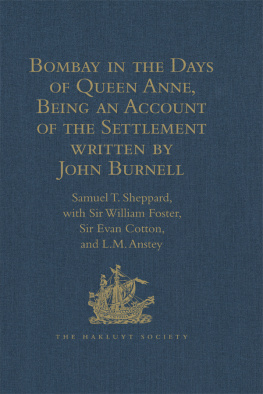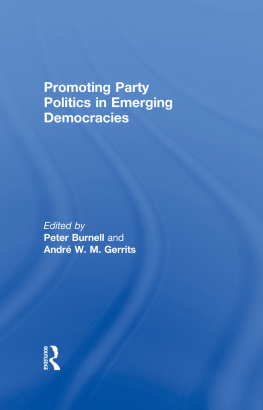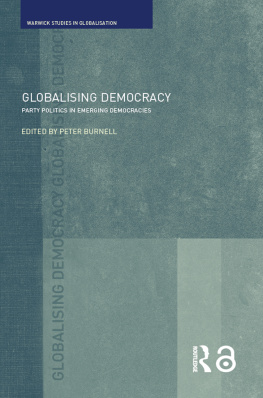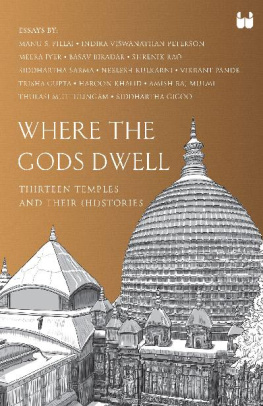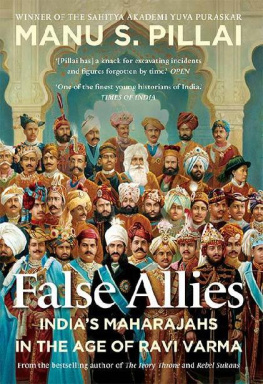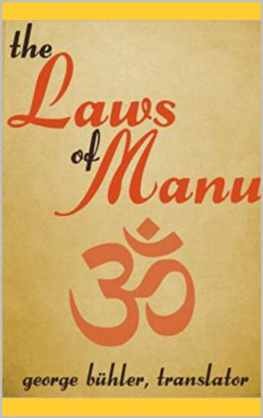First published in 1884 by
Trubner & Co Ltd
Reprinted in 2000, 2002 by
Routledge
2 Park Square, Milton Park, Abingdon, Oxon, OX14 4RN
Transferred to Digital Printing 2007
Routledge is an imprint of the Taylor & Francis Group
1884 Arthur Coke Burnell
All rights reserved No part of this book may be reprinted or reproduced or utilized in any form or by any electronic, mechanical, or other means, now known or hereafter invented, including photocopying and recording, or in any information storage or retrieval system, without permission in writing from the publishers
The publishers have made every effort to contact authors/copyright holders of the works reprinted in Trubners Oriental Series. This has not been possible in every case, however, and we would welcome correspondence from those individuals/companies we have been unable to trace
These reprints are taken from original copies of each book In many cases the condition of these originals is not perfect The publisher has gone to great lengths to ensure the quality of these reprints, but wishes to point out that certain characteristics of the original copies will, of necessity, be apparent in reprints thereof
British Library Cataloguing in Publication Data
A CIP catalogue record for this book
is available from the British Library
The Ordinances of Manu
ISBN 0-415-24516-8
India Religion and Philosophy 10 Volumes
ISBN 0-415-24291-6
Trubners Oriental Series
ISBN 0-415-23188-4
ISBN 978-1-136-38896-5 (ePub)
THE
ORDINANCES OF MANU.
TRANSLATED FROM THE SANSKRIT.
With an Introduction,
BY THE LATE
ARTHUR COKE BURNELL, PH.D., C.I.E.
COMPLETED AND EDITED BY
EDWARD W. HOPKINS, PH.D.
OF COLUMBIA COLLEGE, N.V.
LONDON:
TBBNER & CO., LUDGATE HILL.
1884.
[All rights reserved.]
THE late Dr. Burnell had, as is well known, begun a new translation of the Mnava-dharma-stra, based on the more accurate knowledge we now possess of Indian literature, as compared with that obtainable by the early translators. This work the author unhappily did not live to finish. A year ago it was proposed to the editor to complete the undertaking, and deeming it a pleasure to feel that the last labours of an honoured scholar, such as was Dr. Burnell, might be preserved and handed down through his instrumentality, he cheerfully consented to undertake the preparation of the work for the press.
The present volume contains this final memorial of Dr. Burnell, and is now offered to the public with such additions only as appeared to the editor to be absolutely necessary. Of the lessened worth unavoidably arising from the transfer of the work to one lacking the skill and scholarship of the author of the translation, the editor himself is fully aware.
The books plan and purpose have been sufficiently discussed by Dr. Burnell in the following Introduction, and nothing further is needed on that score except in so far as the editor may have laid himself open to the charge of deviating from the method proposed by the author. On that point he would remark: the author of the translation has defined the line of interpretation as based on the text of Kullka, over against modifications of that text by acceptance of the varied readings found in Medhtithi. He has not, however, always complied with this rule; and if here and there the editor has altered the textus receptus of Kullka to suit a reading preferred by Medhtithi, and seemingly better, he has but followed where the author led. In so far as there were sufficient data to indicate a line of action, the practice pursued by Dr. Burnell has been uniformly followed. As indicative of the course which in certain cases would originally have been taken by him, the following facts have been noticed. Differences of opinion on the part of the commentators, when based on a desire to reconcile the text with itself, or with other tradition, are seldom noticed; occasionally special remarks only are noted; the explanation of one commentator is sometimes omitted entirely when that of another is preferred; no one word or phrase is persistently rendered in the same way (i. 21; ii. 1, 36;.i. 58; dharma, rule, law, duty, ii. 3, 45, 61, 229, 235). In short, the aim was practical, and Dr. Burnell has grasped the real value of the commentators, viz., to show us the original form of the text, and to indicate the Indian understanding of passages which might, through his foreign tone of thought, be misunderstood by an Occidental. On the forced and sometimes impossible meanings got from the text by expositors theoretically obliged to make it conform to certain opinions held by themselves, little weight is laid by Dr. Burnell, and the editor has, therefore, tried to submit his choice of extracts from the commentators to this principle of excerption.
A decided leaning, however, will be noticed in Dr. Burnells translation to an interpretation based on the unanimous explanation of the commentators on points where it might be questioned whether these scholiasts are not all wrong. This has been conspicuous in the treatment of the first Lecture, where much of late philosophy has crept into the translation on account of the commentators, though such interpretation has been objected to by European scholars. In no such case has the editor felt himself at liberty to alter the phraseology of the translation, though he has sometimes added in the notes what he conceived to be a truer rendering of the original text. He has, indeed, been particularly cautious not to offend the intention of the author in this respect, since it is possible that, in conformity with the late origin assumed by the latter for the work, this very style of translation may have been his deliberate choice, aside from the remarks of the Vedantic commentators. In regard to other portions of the translation less scruples have been felt, and occasionally changes in the wording have been made by the editor. As a matter of course, these have, however, been as infrequent as possible, and no change has been made without due remark and explanation in the notes. In general, nothing has been altered which the editor did not believe would have been altered by Dr. Burnell, had he lived to complete and revise his work. The few exceptions to this statement are justified by the fact that such cases are chiefly due to a simpler arrangement of the too literal translation sometimes employed. It was thought unnecessary to call attention to such changes at each occurrence, as the alterations were made merely to simplify, not to change, the original thought.






